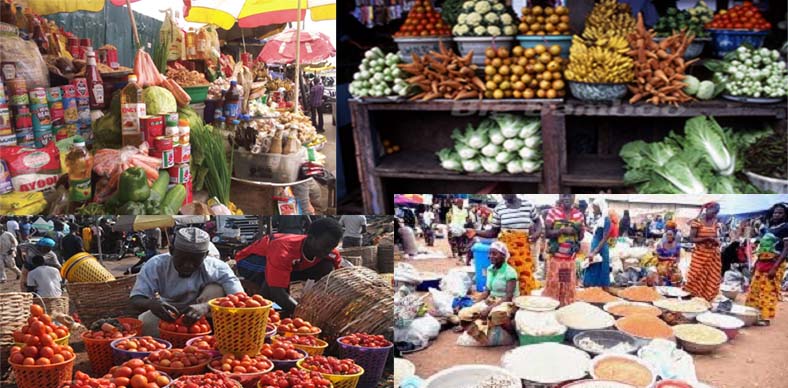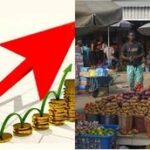In Nigeria, the ominous shadow of a developing food crisis looms large, signaling not only heightened economic strain but also a danger to the nation’s stability.
The persistent rise in food costs, presently marking its 15th consecutive rise, paints a grim picture of hardship for millions of Nigerians.
Join our WhatsApp ChannelRecent data from the National Bureau of Statistics uncovers a stunning reality: food inflation has skyrocketed by 2.09 percent, coming to an alarming 40.01 percent year-on-year. This sharp increment, totaling 15.56 rate points compared to the previous year, underscores the seriousness of the crisis holding the nation.
“In the face of a looming food emergency exacerbated by the relentless targeting of farmers and the destruction of their livelihoods, one can’t help but wonder how long this dangerous liaison will persist,” says a concerned observer.
Over the past 15 months, food inflation rates have surged by 65.33 percent, highlighting the mounting weight on buyers and the economy. This concerning trend emphasizes the pressing need for viable relief measures.
Insecurity remains a primary driver of the crisis, making it increasingly difficult for farmers to tend to their crops and for food to reach those most in need. Violence in agricultural heartlands disturbs food supply chains, with over 150 communities presently enduring beneath illegal militia occupations in disturbed regions.
The unchecked brutality jeopardizes indeed the most fundamental right—access to food. Hotspots like Plateau, Taraba, and Benue states witness widespread bloodshed, clearing out destruction in its wake and raising questions around governance’s effectiveness.
READ ALSO: Economic Crisis: Nigeria Has No Option Than To Produce For Food Security, Forex Stability – Utomi
Climate change compounds these challenges, disturbing delicate ecosystems and causing crop failures due to unpredictable climate patterns. Nigeria’s execution in addressing climate change remains blended, posing noteworthy obstacles to agricultural sustainability.
Smallholder farmers, especially defenseless to climate extremes, face reduced yields and efficiency in the midst of erratic rainfall and delayed droughts. Pressing activity is needed to execute climate-resilient agricultural practices and bolster helpless communities.
Urbanization worsens the crisis, drawing individuals absent from rural areas and straining as of now stretched resources in cities. Internal migration driven by frailty disturbs conventional agricultural practices, further contributing to food insecurity.
Amidst these challenges, urgent action is imperative to address insecurity, climate change, and urbanization. Nigeria must prioritize food security, implementing effective approaches, and cultivating versatility to construct a sustainable future for all.
Emmanuel Ochayi is a journalist. He is a graduate of the University of Lagos, School of first choice and the nations pride. Emmanuel is keen on exploring writing angles in different areas, including Business, climate change, politics, Education, and others.
- Emmanuel Ochayihttps://www.primebusiness.africa/author/ochayi/
- Emmanuel Ochayihttps://www.primebusiness.africa/author/ochayi/
- Emmanuel Ochayihttps://www.primebusiness.africa/author/ochayi/
- Emmanuel Ochayihttps://www.primebusiness.africa/author/ochayi/




















Follow Us